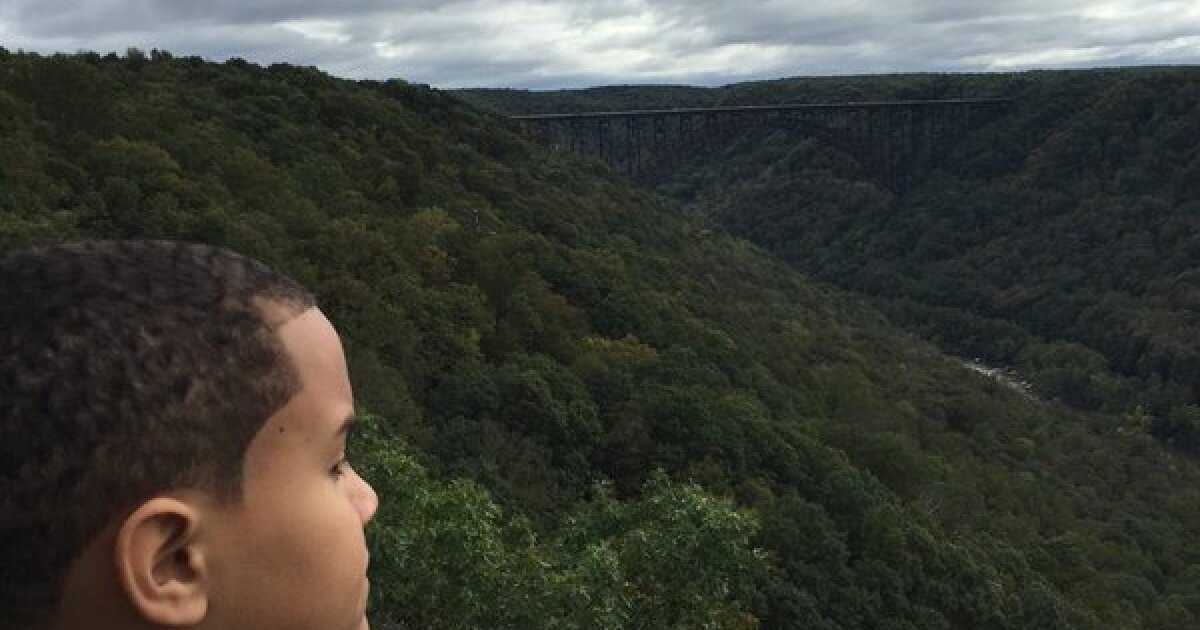Ever hear the word ‘Affrilachian’? In the 1990s, a poet in Kentucky named Frank X Walker came up with the term. It refers to African Americans living in Appalachia.
“To us it was about making the invisible visible, or giving voice to a previously muted or silenced voice,” Walker told the Appalachian Studies Association during its 2016 conference at Shepherd University.
Walker’s word gave rise to a group of Affrilachian writers called The Affrilachian Poets, who write about social justice issues and support diversity in Appalachian literature. The group includes Kentucky writer Crystal Wilkinson.
“Any time that you can come across something that gives you a stronger sense of self identity that important to have. The name what we call ourselves is important,” Wilkinson told WMMT’s Kelli Haywood earlier this year.
“And it’s a sort of a back-straightening, empowering word that has long since gone on beyond his original intention. And I think that’s a wonderful thing, too,” said Wilkinson.
We also hear from Affrilachian Poet Crystal Good. She writes about cultural identity in Appalachia, and about how the national media portrays Appalachians with negative stereotypes. Right after the 2014 election, Good shared a poem she’d written called “Appalachian Blackface” about how politics in Appalachia are so deeply rooted in coal.
We’re interested in hearing your reactions to the latest election. We’re working on an episode about what the change in administration could mean for Appalachia. Send us a tweet to @Inappalachia #MyAppalachia.
Gospel Legend Ethel Caffie Austin
We’ll also hear from a woman who’s known as West Virginia’s First Lady of Gospel Music. Ethel Caffie Austin grew up in the coalfields of Mt. Hope West Virginia, where she was inspired by her choir teacher and got her start in music through church.
In 2001, Appalshop’s Anne Lewis and Mimi Pickering produced a thirty minute film about Caffie-Austin called His Eye is on the Sparrow.
Austin’s high school teacher who inspired her to pursue music was Mrs. Fleming- you may remember her from a previous episode of Inside Appalachia, when Austin and some of Mrs. Fleming’s former students returned to Mt. Hope to pay tribute to their teacher.
One Woman Journeys Back to Appalachia for Son
In this episode we also hear the story of Paula Riley Thomas of McDowell County. She was living in Alexandria, Va., in 1991 when her son James was born. But she moved back when James was a year old to escape domestic violence. She struggled to recover emotionally but found some hope in her Christian faith and writing poetry.
We hear a poem she wrote about her son, James, shortly after she moved back to McDowell County, W.Va., in 1992. She writes about the day James was born in a poem called, “Colors of Life and Love”.
We had help producing Inside Appalachia this week from WMMT and Appalshop, in Whitesburg, Ky., and the Appalachian Studies Association.
Music in today’s show was provided by Ethel Caffie Austin and Rhiannon Giddens as heard on Mountain Stage. Music was also provided by Crystal Good and Heroes Are Gang Leaders, a band Good performs with. Our host is Jessica Lilly. Our producer is Roxy Todd. Our editor is Jesse Wright. Our audio mixer is Zander Aloi.





















